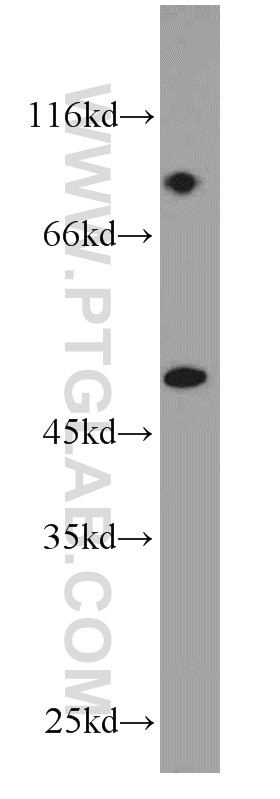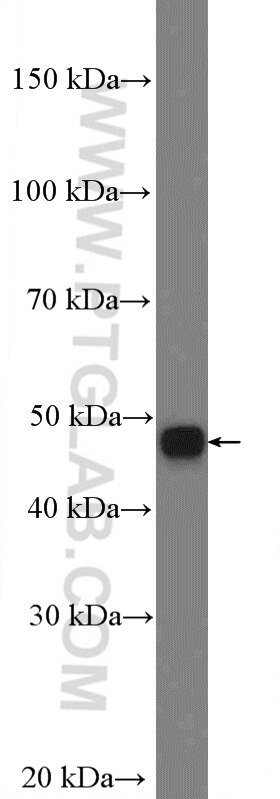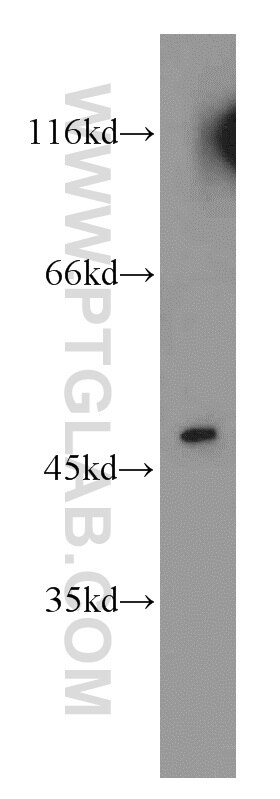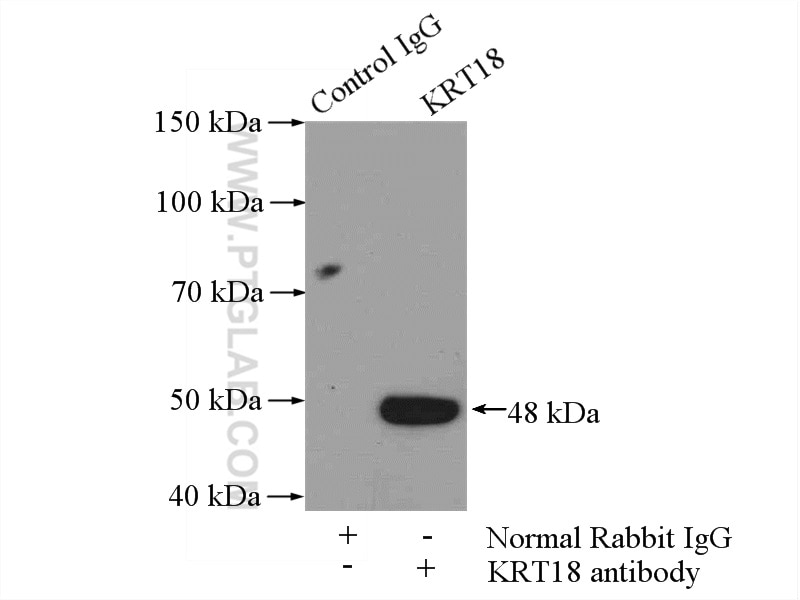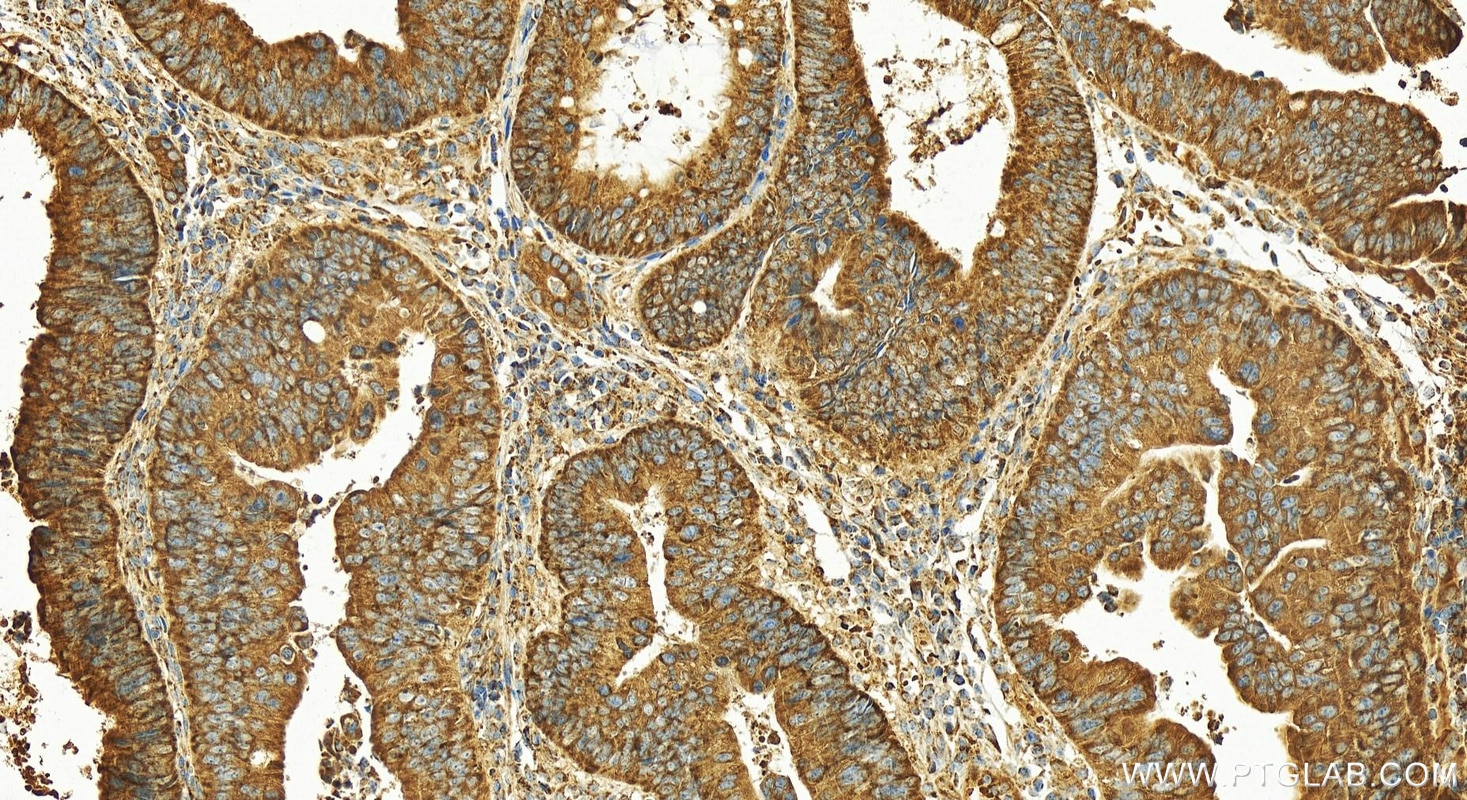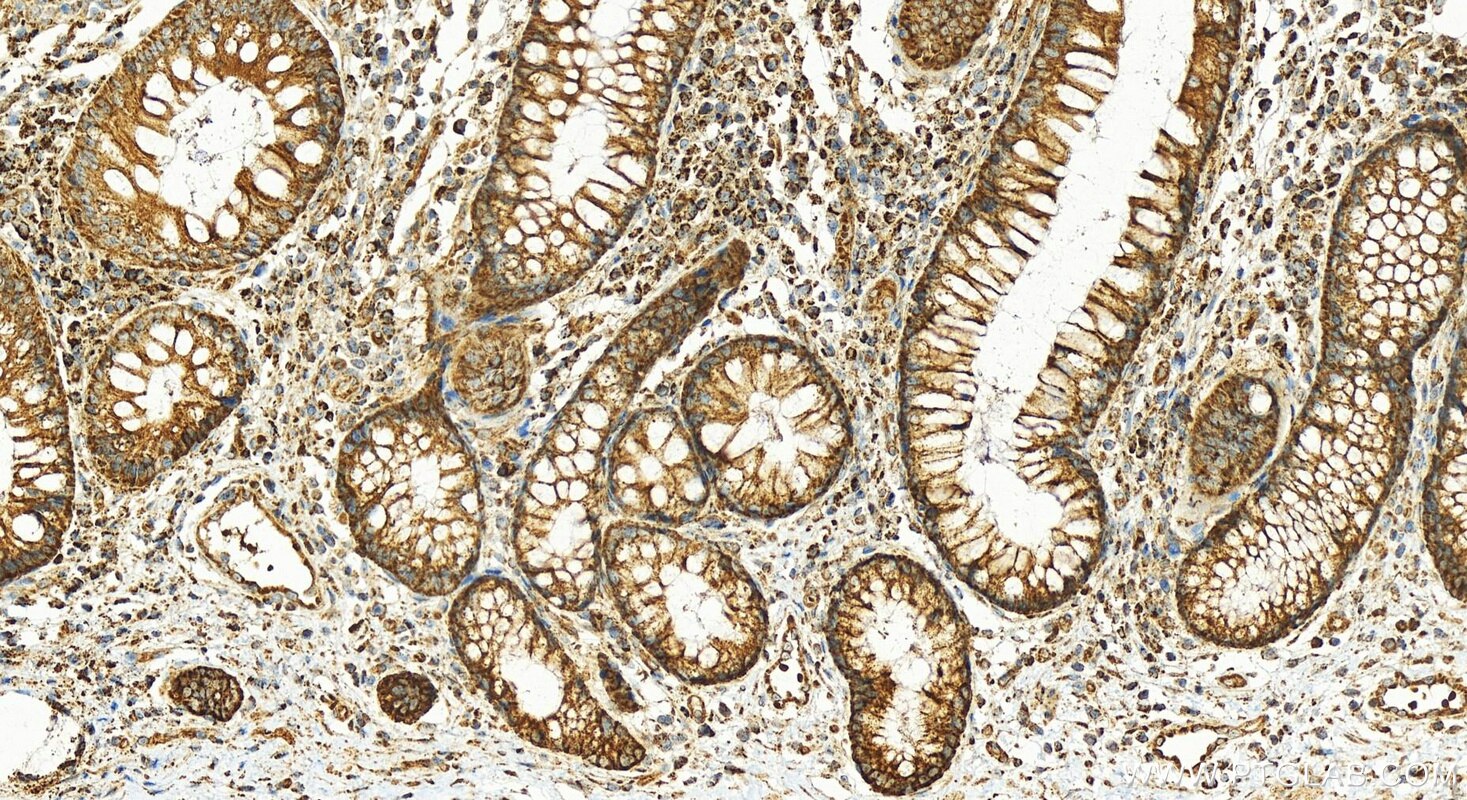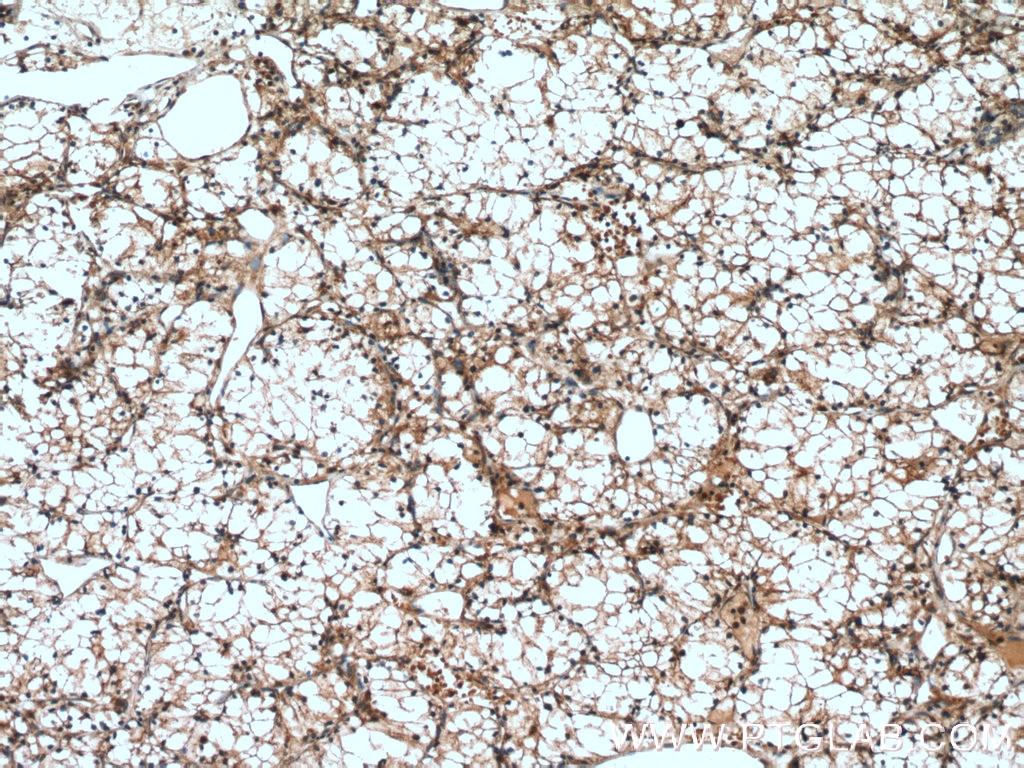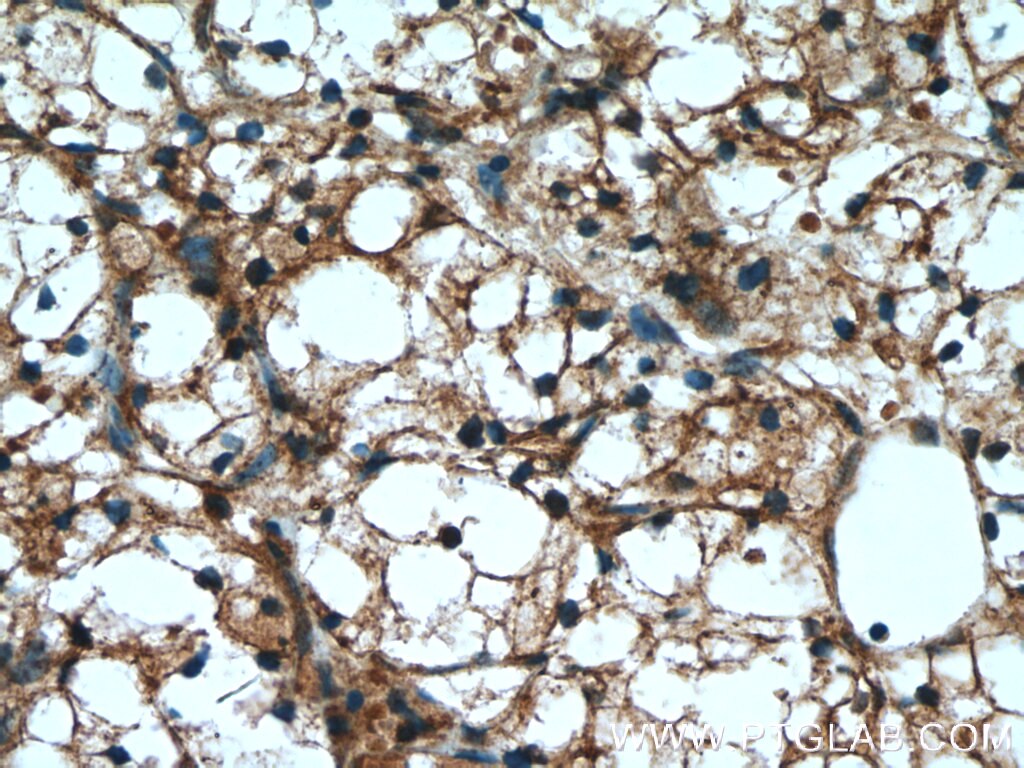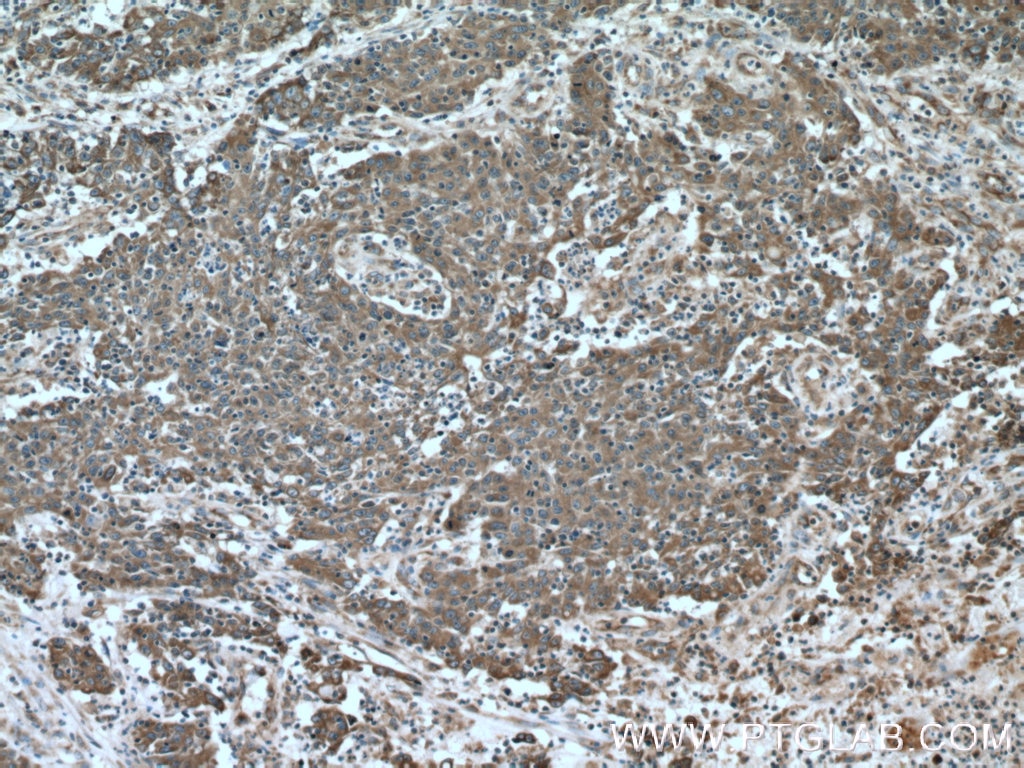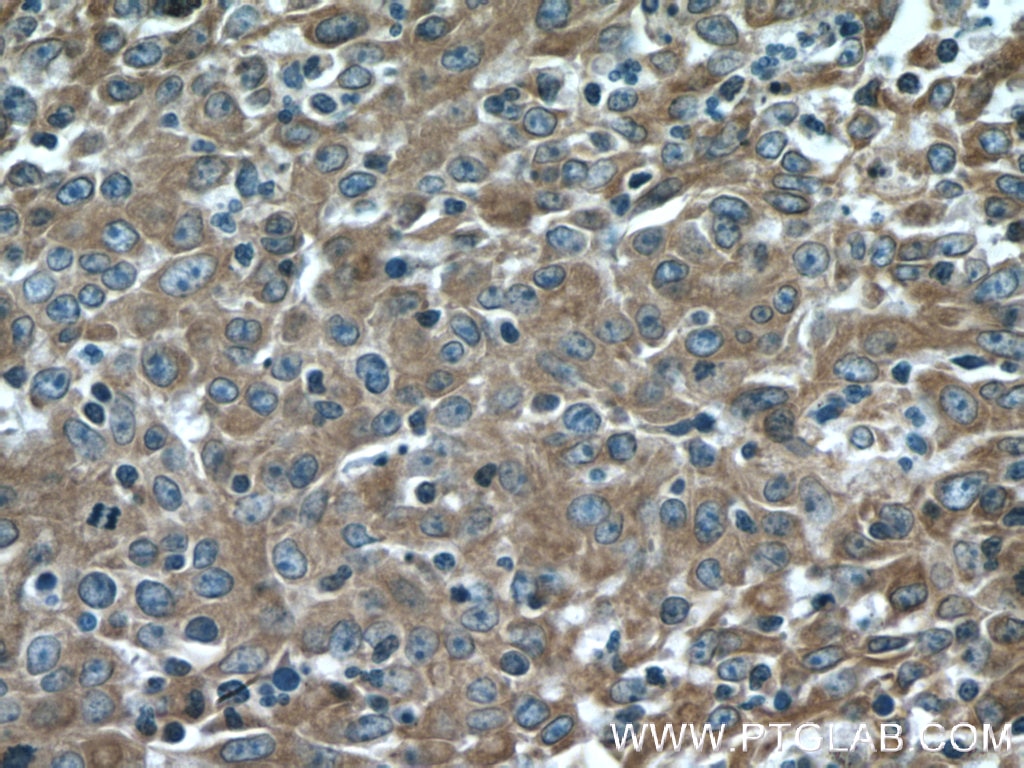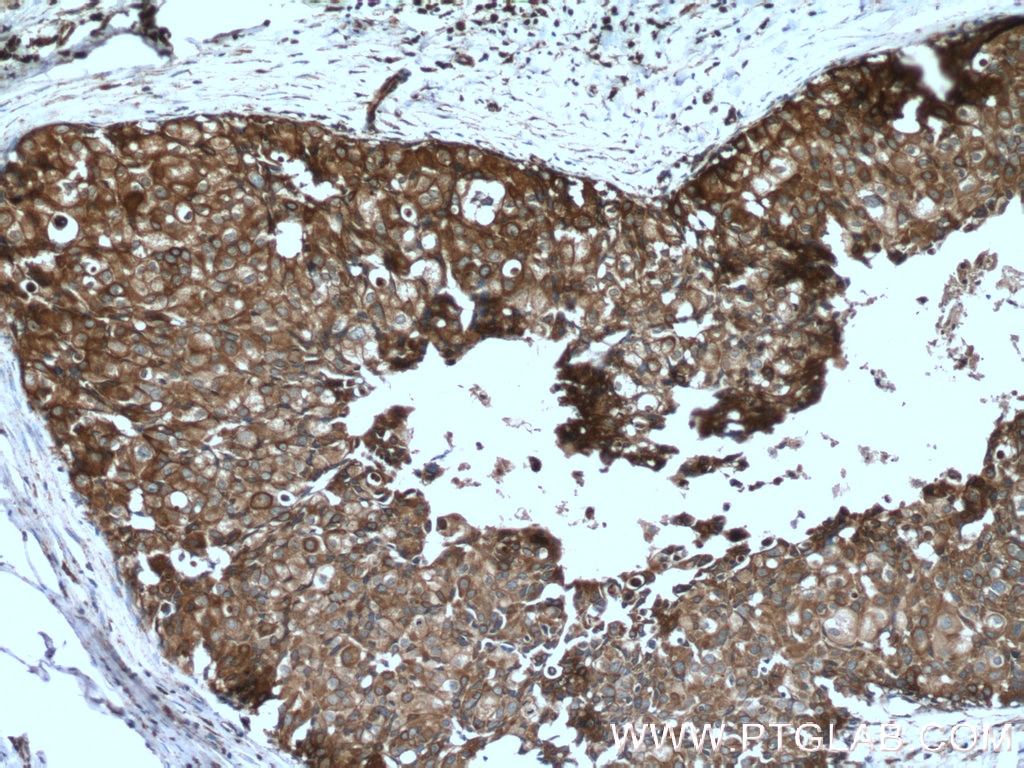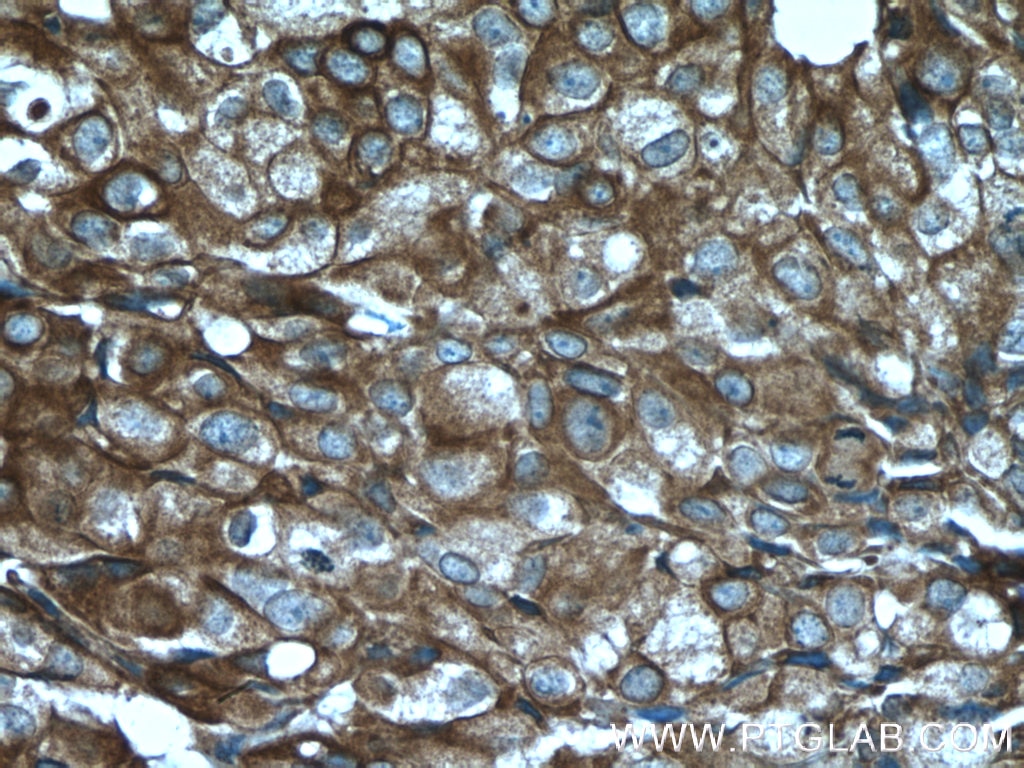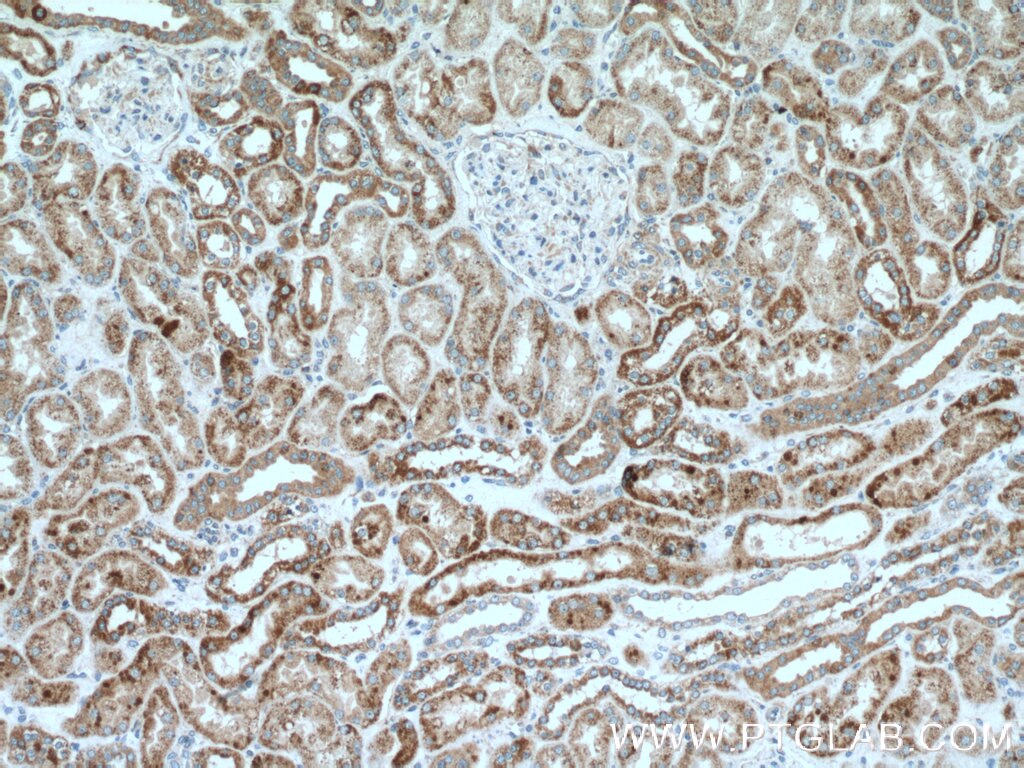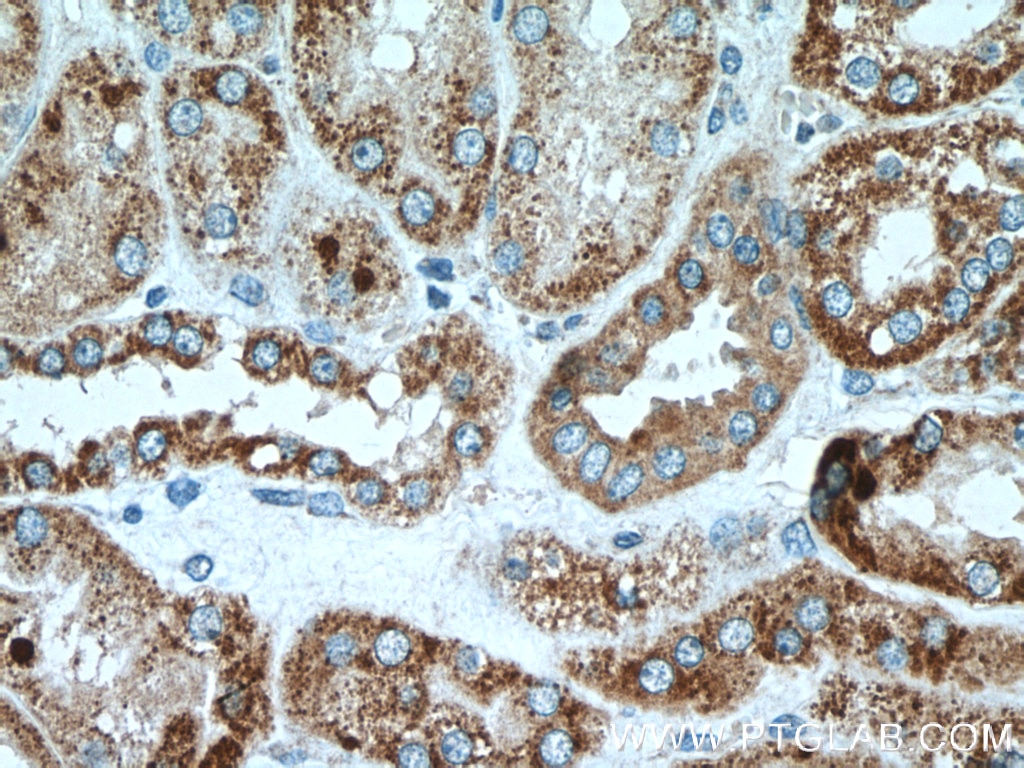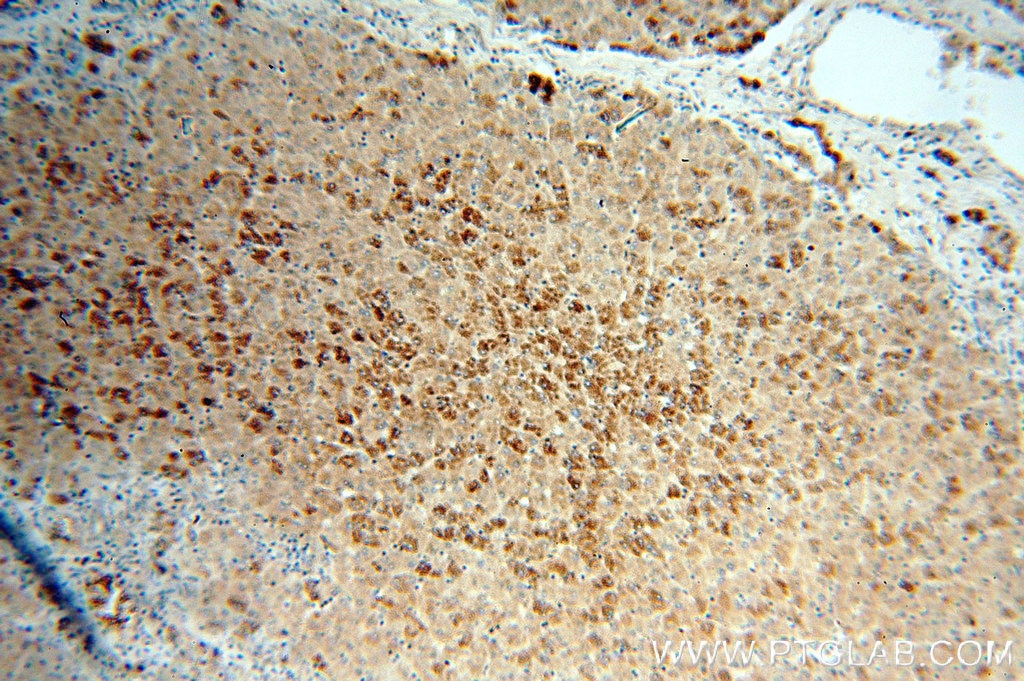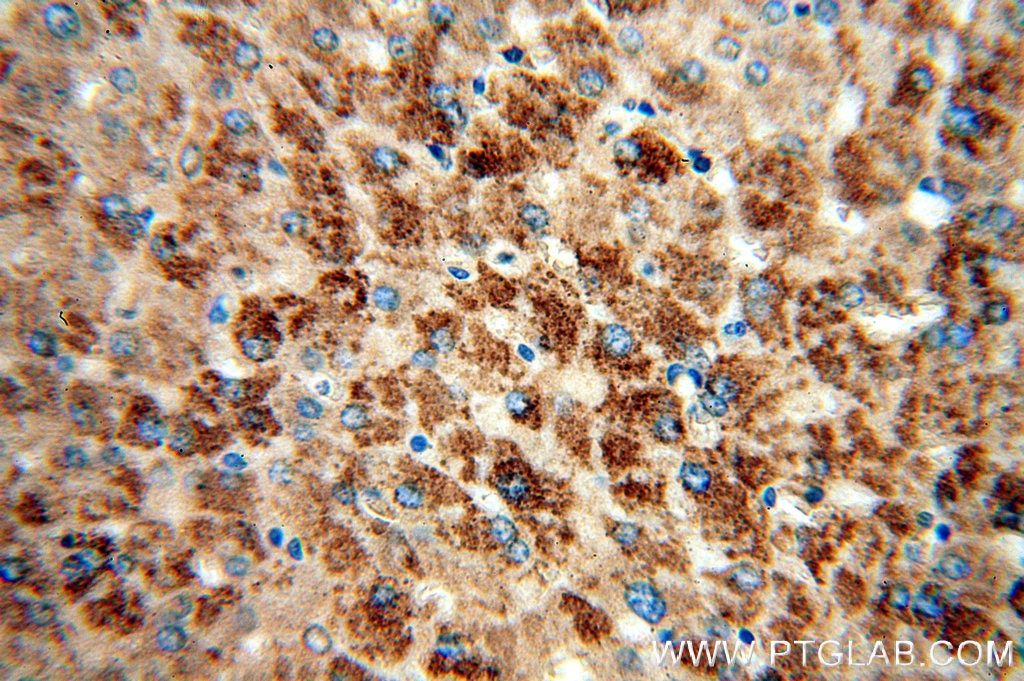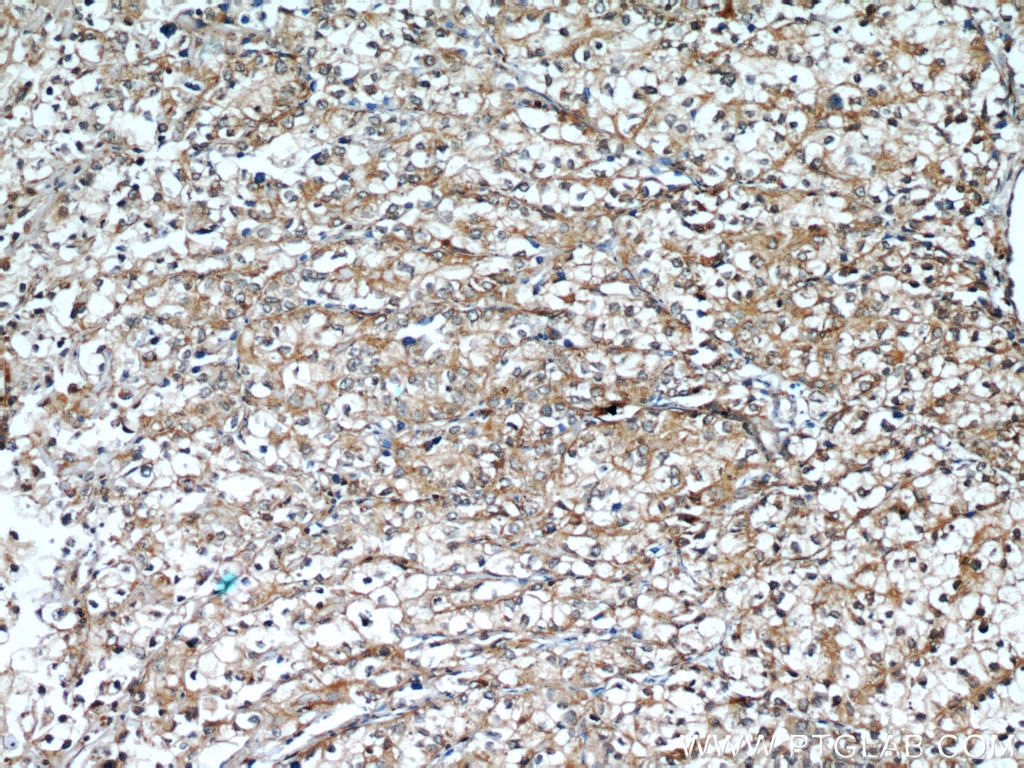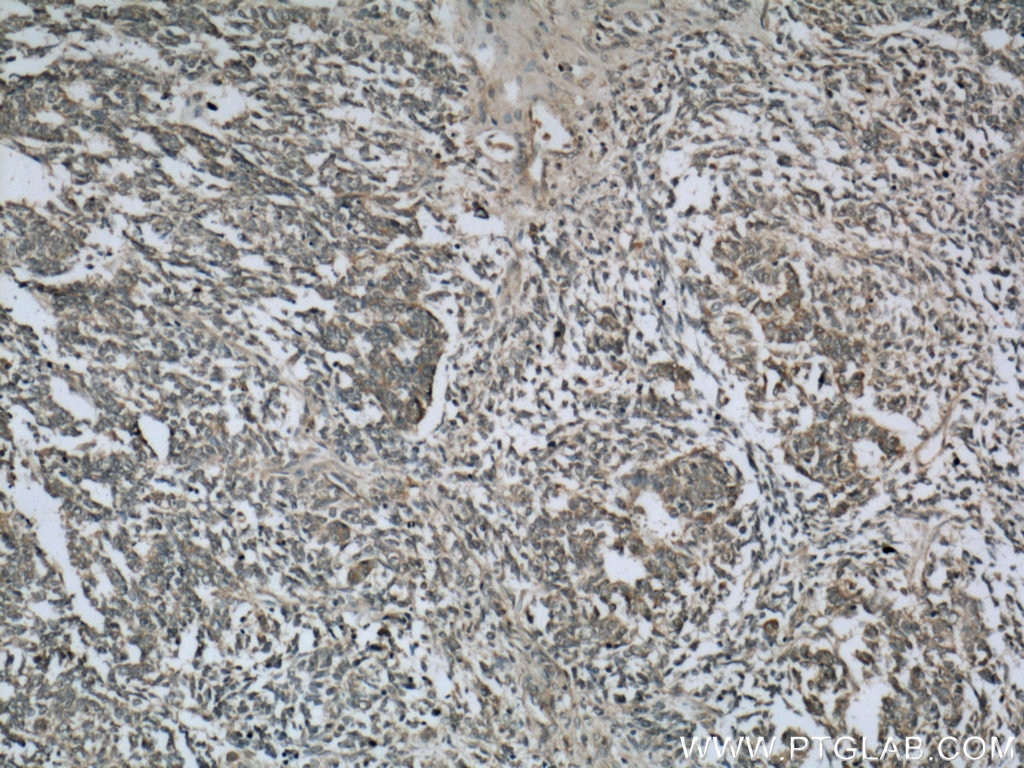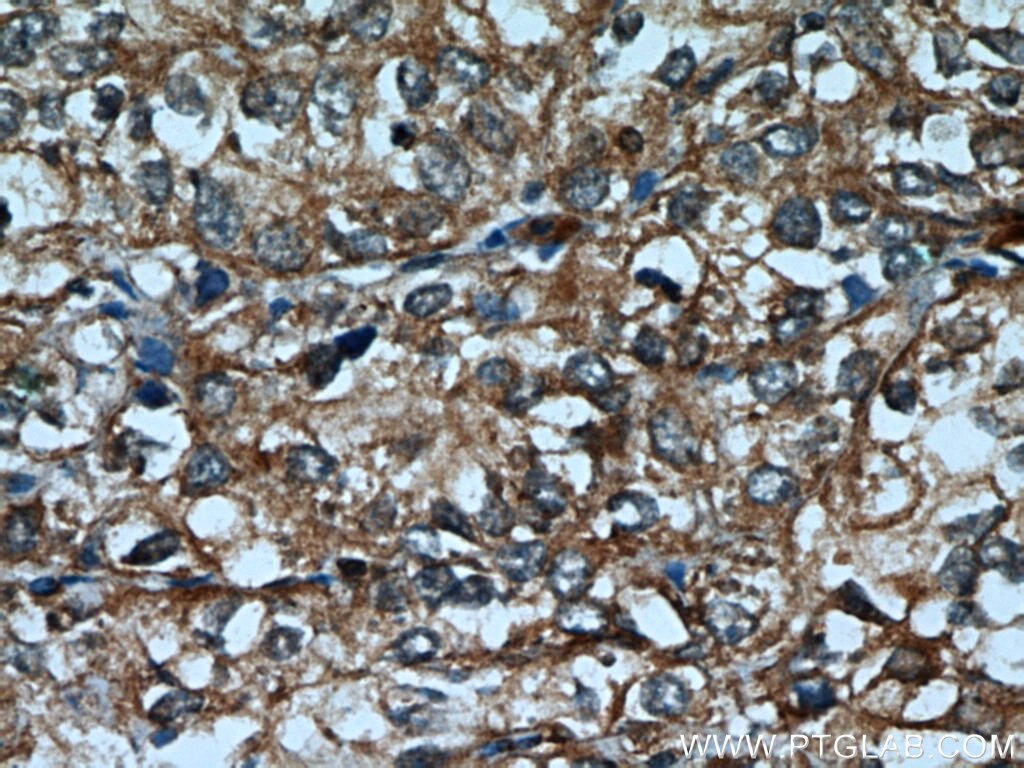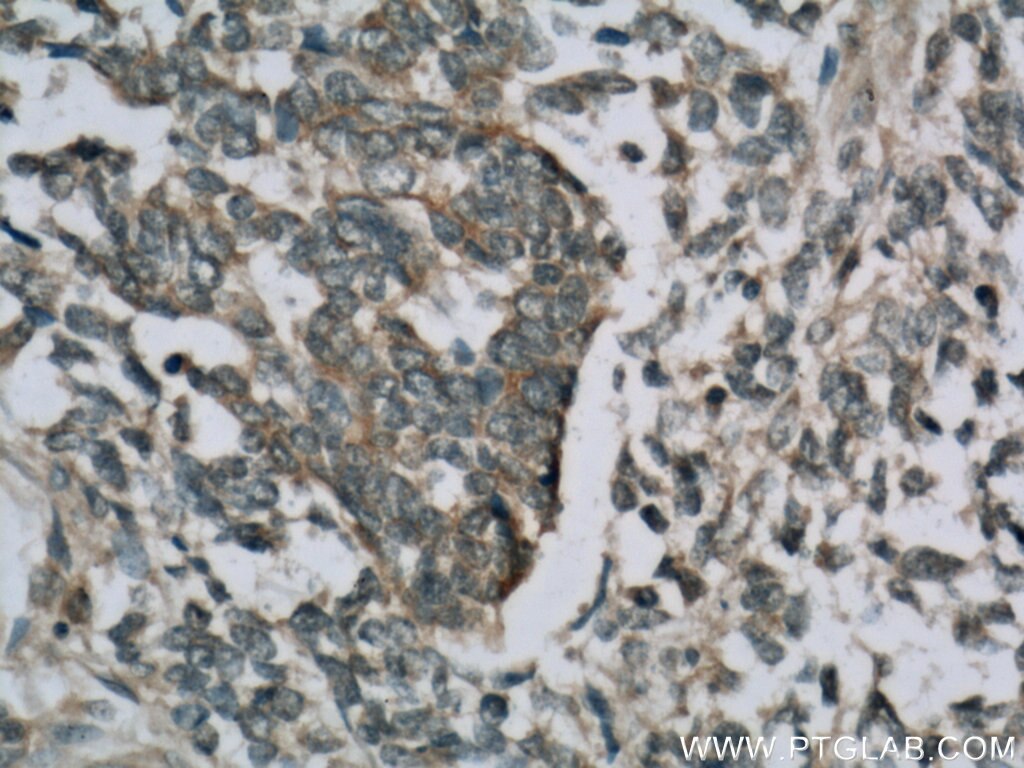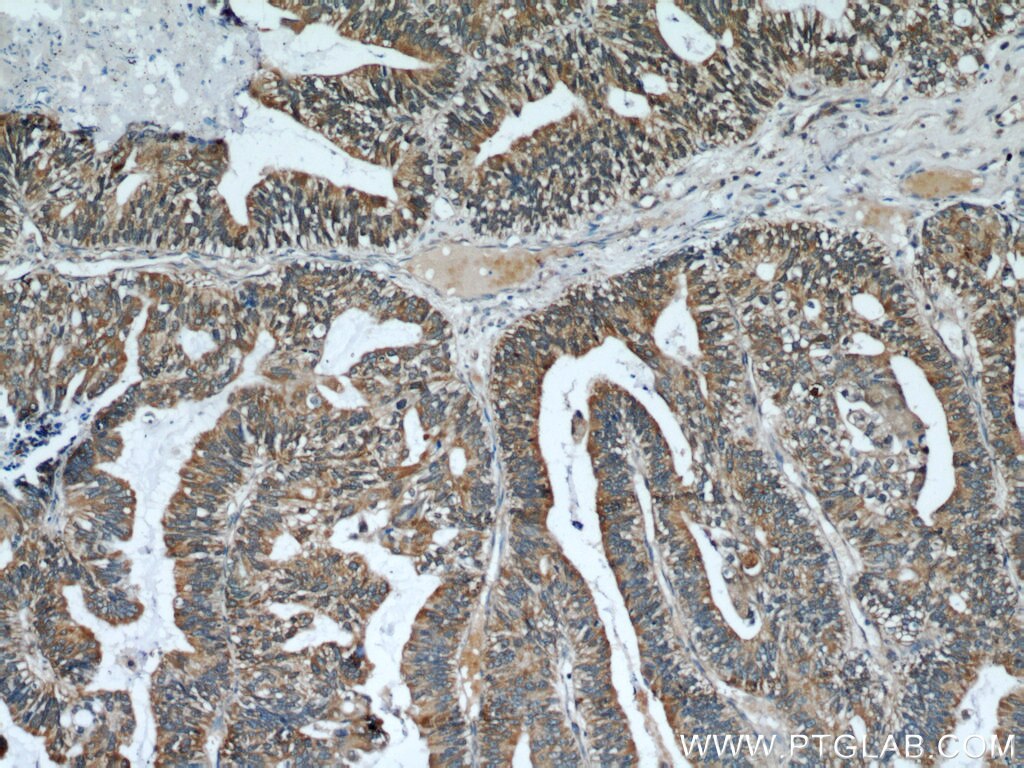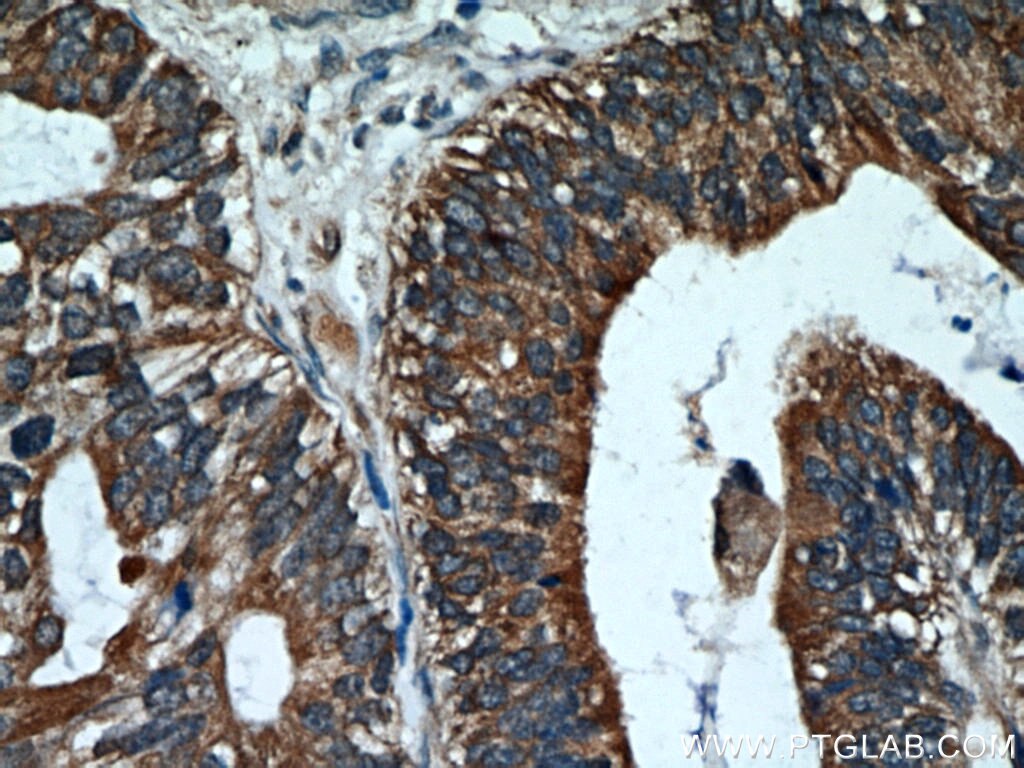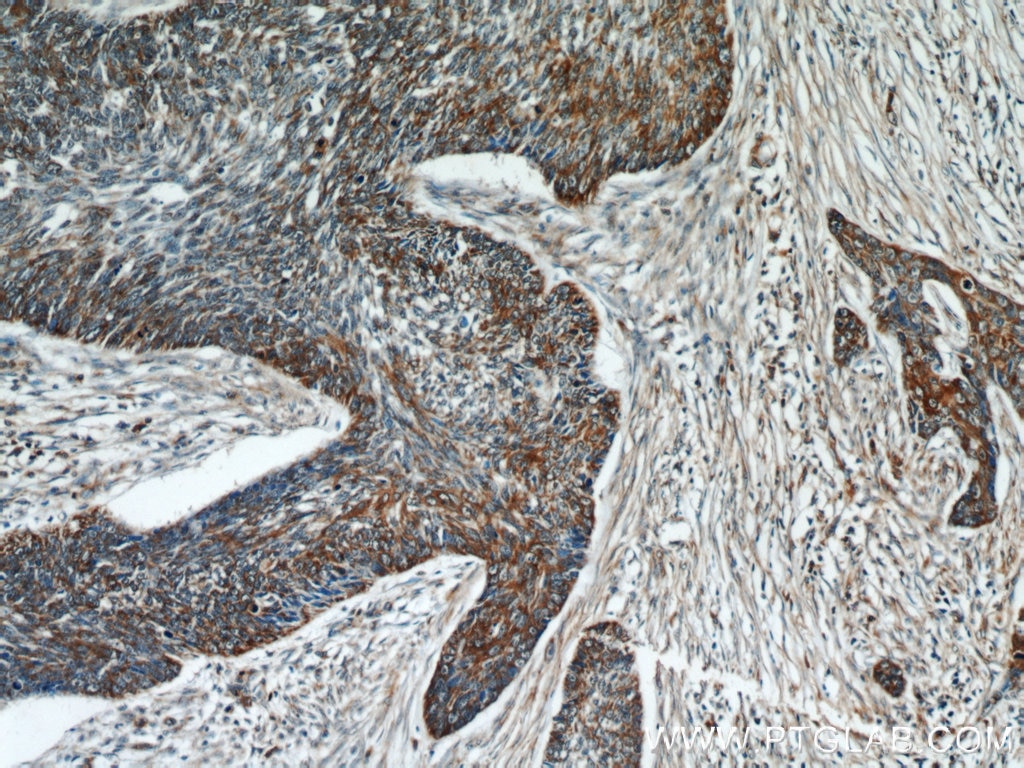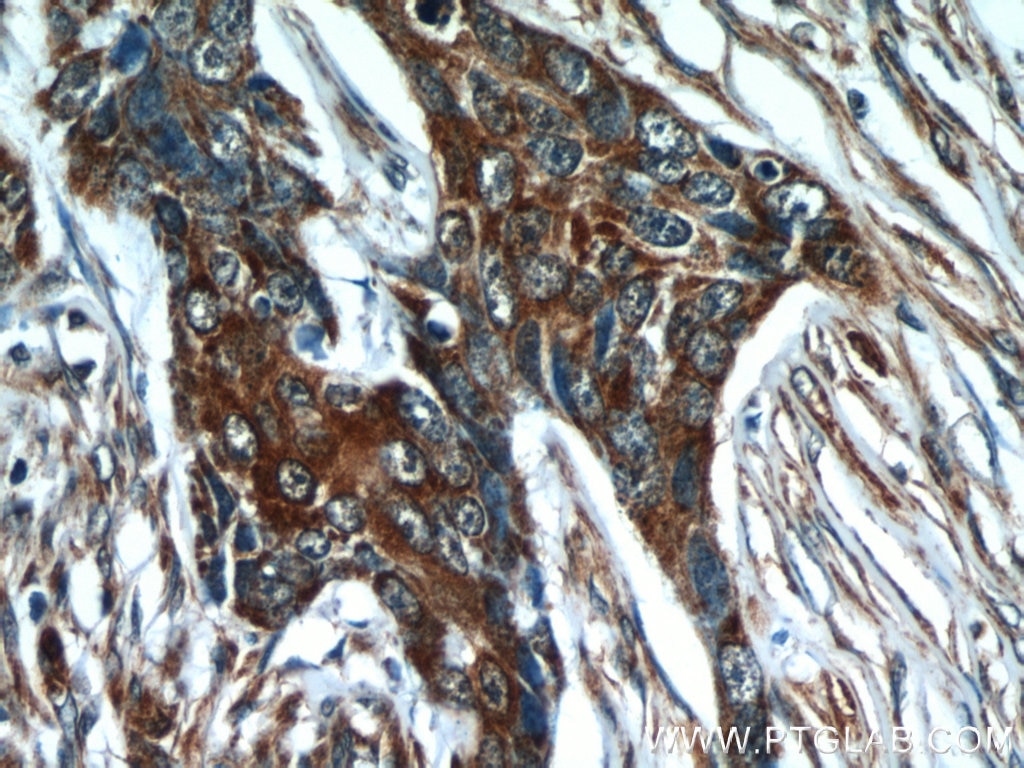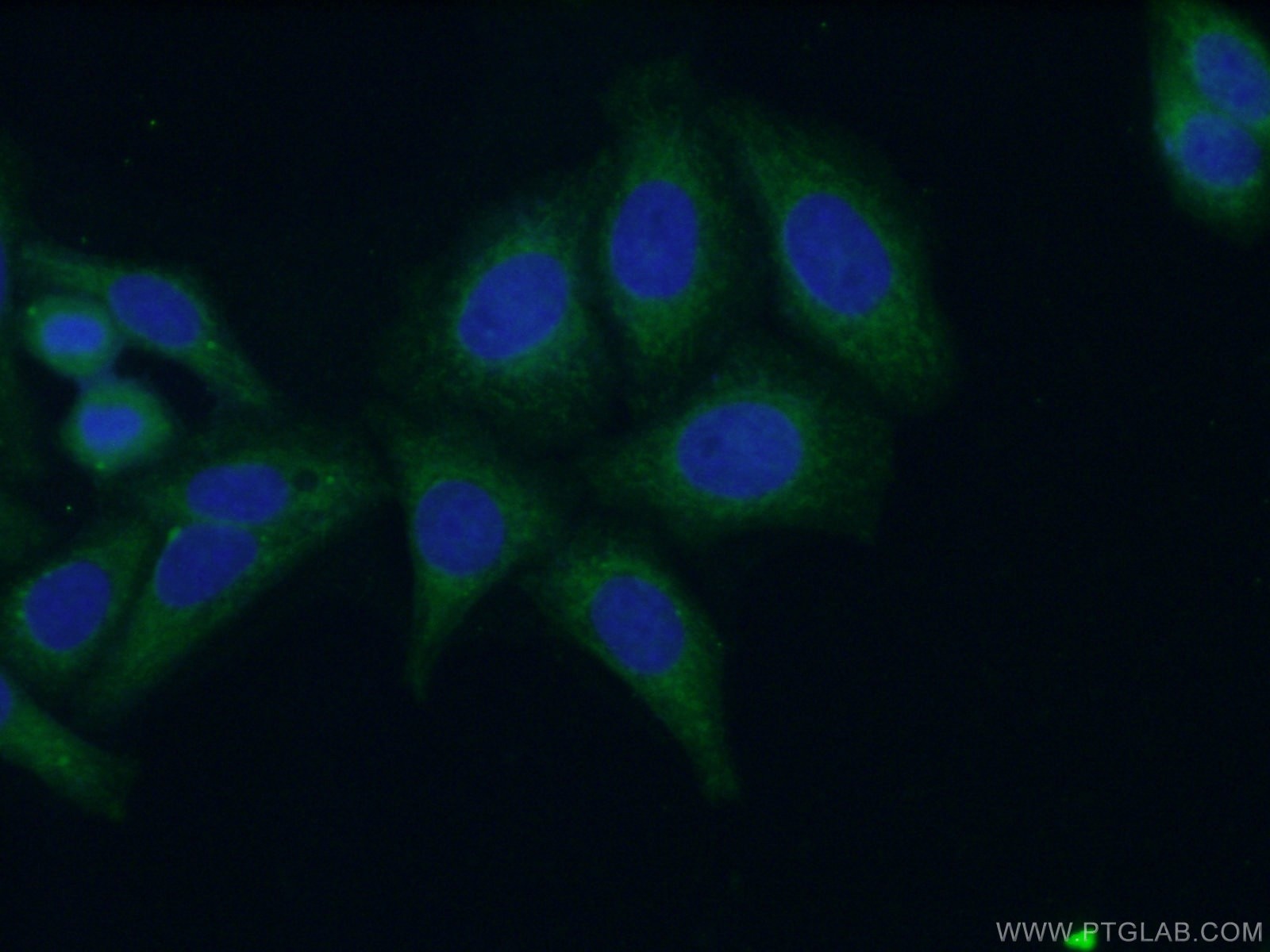Validation Data Gallery
Tested Applications
| Positive WB detected in | A431 cells, COLO 320 cells, HepG2 cells |
| Positive IP detected in | A431 cells |
| Positive IHC detected in | human colon cancer tissue, human breast cancer tissue, human endometrial cancer tissue, human kidney tissue, human liver tissue, human nephroblastoma tissue, human ovary tumor tissue, human renal cell carcinoma tissue, human skin cancer tissue Note: suggested antigen retrieval with TE buffer pH 9.0; (*) Alternatively, antigen retrieval may be performed with citrate buffer pH 6.0 |
| Positive IF/ICC detected in | HepG2 cells |
Recommended dilution
| Application | Dilution |
|---|---|
| Western Blot (WB) | WB : 1:500-1:2000 |
| Immunoprecipitation (IP) | IP : 0.5-4.0 ug for 1.0-3.0 mg of total protein lysate |
| Immunohistochemistry (IHC) | IHC : 1:300-1:1200 |
| Immunofluorescence (IF)/ICC | IF/ICC : 1:50-1:500 |
| It is recommended that this reagent should be titrated in each testing system to obtain optimal results. | |
| Sample-dependent, Check data in validation data gallery. | |
Published Applications
| IHC | See 2 publications below |
| IF | See 2 publications below |
Product Information
18708-1-AP targets Cytokeratin 18 in WB, IHC, IF/ICC, IP, ELISA applications and shows reactivity with human samples.
| Tested Reactivity | human |
| Cited Reactivity | mouse, pig, bovine |
| Host / Isotype | Rabbit / IgG |
| Class | Polyclonal |
| Type | Antibody |
| Immunogen | Peptide 相同性解析による交差性が予測される生物種 |
| Full Name | keratin 18 |
| Calculated molecular weight | 48 kDa |
| Observed molecular weight | 48 kDa |
| GenBank accession number | BC000180 |
| Gene Symbol | Cytokeratin 18 |
| Gene ID (NCBI) | 3875 |
| RRID | AB_2133162 |
| Conjugate | Unconjugated |
| Form | Liquid |
| Purification Method | Antigen affinity purification |
| UNIPROT ID | P05783 |
| Storage Buffer | PBS with 0.02% sodium azide and 50% glycerol{{ptg:BufferTemp}}7.3 |
| Storage Conditions | Store at -20°C. Stable for one year after shipment. Aliquoting is unnecessary for -20oC storage. |
Background Information
Keratins are a large family of proteins that form the intermediate filament cytoskeleton of epithelial cells, which are classified into two major sequence types. Type I keratins are a group of acidic intermediate filament proteins, including K9-K23, and the hair keratins Ha1-Ha8. Type II keratins are the basic or neutral courterparts to the acidic type I keratins, including K1-K8, and the hair keratins, Hb1-Hb6. KRT18, also named as CYK18, PIG46 and K18, is the most commonly found members of the intermediate filament gene family. KRT18 is a type I keratin which is found primarily in non squamous epithelia and is present in a majority of adenocarcinomas and ductal carcinomas but not in squamous cell carcinomas. This antibody is specifically agianst KRT18.
Protocols
| Product Specific Protocols | |
|---|---|
| WB protocol for Cytokeratin 18 antibody 18708-1-AP | Download protocol |
| IHC protocol for Cytokeratin 18 antibody 18708-1-AP | Download protocol |
| IF protocol for Cytokeratin 18 antibody 18708-1-AP | Download protocol |
| IP protocol for Cytokeratin 18 antibody 18708-1-AP | Download protocol |
| Standard Protocols | |
|---|---|
| Click here to view our Standard Protocols |
Publications
| Species | Application | Title |
|---|---|---|
Oncoscience The helix-loop-helix transcriptional regulator Id4 is required for terminal differentiation of luminal epithelial cells in the prostate. | ||
J Agric Food Chem CIDEA Regulates De Novo Fatty Acid Synthesis in Bovine Mammary Epithelial Cells by Targeting the AMPK/PPARγ Axis and Regulating SREBP1 | ||
Cells Hypothalamic-Pituitary-Adrenal Hormones Impair Pig Fertilization and Preimplantation Embryo Development via Inducing Oviductal Epithelial Apoptosis: An In Vitro Study | ||
J Agric Food Chem Mitochondrial Calcium Uniporter Regulator 1 (MCUR1) Relieves Mitochondrial Damage Induced by Lipopolysaccharide by Mediating Mitochondrial Ca2+ Homeostasis in Bovine Mammary Epithelial Cells |
